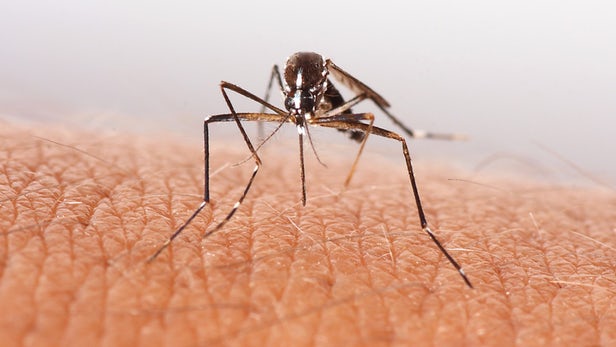20 million sterile mosquitoes to be released in California

Twenty million sterile male mosquitoes are to be released across two neighborhoods in Fresno Country, California (Credit: natursports/Depositphotos)
Verily, an independent subsidiary of Google's parent company Alphabet, has just launched its Debug Fresno project, which will see the release of 20 million sterile male mosquitoes across two neighborhoods in Fresno Country, California. This will be the largest mosquito field study ever conducted in the US with an aim of curbing the population of the disease-carrying insect.
This large-scale field test is part of Verily's Debug Project, which was launched last October. The initiative set out to develop a way to safely combat the scourge of disease that mosquitoes spread around the world. The idea was to utilize the sterile insect technique (SIT) to release a volume of sterile insects into the wild and ultimately reduce a local insect population.
SIT has been successfully deployed numerous times around the world over the last 50 years, eradicating problematic insects such as the screw-worm fly in the US and the Mexican fruit fly in Northern Mexico. Generally, the sterilization process involves using radiation, but that has been found to be ineffective in mosquitoes.
Here the scientists have turned to a naturally occurring bacterium called Wolbachia. Research has found that male mosquitoes infected with the bacteria are rendered sterile. Infected male mosquitoes will still naturally mate with females, but the resulting eggs will not hatch. The idea is that a large-scale release of Wolbachia-infected male mosquitos should decimate the local mosquito population in a short period of time.
Male mosquitoes are non-biting, so the release of such a volume of insects is not expected to have an impact on the human population. Also, as the process involves utilizing a natural bacterium, there is no genetic modification necessary. This keeps the technique from entering the murky ethical debates currently surrounding broad releases of genetically modified organisms into our environment.
The big challenge to overcome in the large-scale deployment of this tactic is the fact that it is costly and time intensive to raise only male mosquitoes and infect them with Wolbachia. This is where Verily's computer and engineering experts come into the picture.
The company has developed an automated mass-rearing system than can efficiently and robotically separate the sexes, so only male mosquitoes are released into public neighborhoods. This system can currently produce one million sterile male mosquitoes per week.
The company has also developed customized software algorithms and release devices designed to evenly distribute the mosquitoes throughout a neighborhood. This software can monitor mosquito populations in a neighborhood and more effectively manage the distribution of the sterilized males across a season.
In the case of the Debug Fresno project, the company will release one million mosquitoes per week over 20 weeks across two neighborhoods. This large field study is just the first of several planned, with another rolling out in Australia later in the year in conjunction with the Australian Commonwealth Scientific Research Organization (CSIRO).
Take a look at how the Debug Fresno project will work in the video below.
Source: Verily


